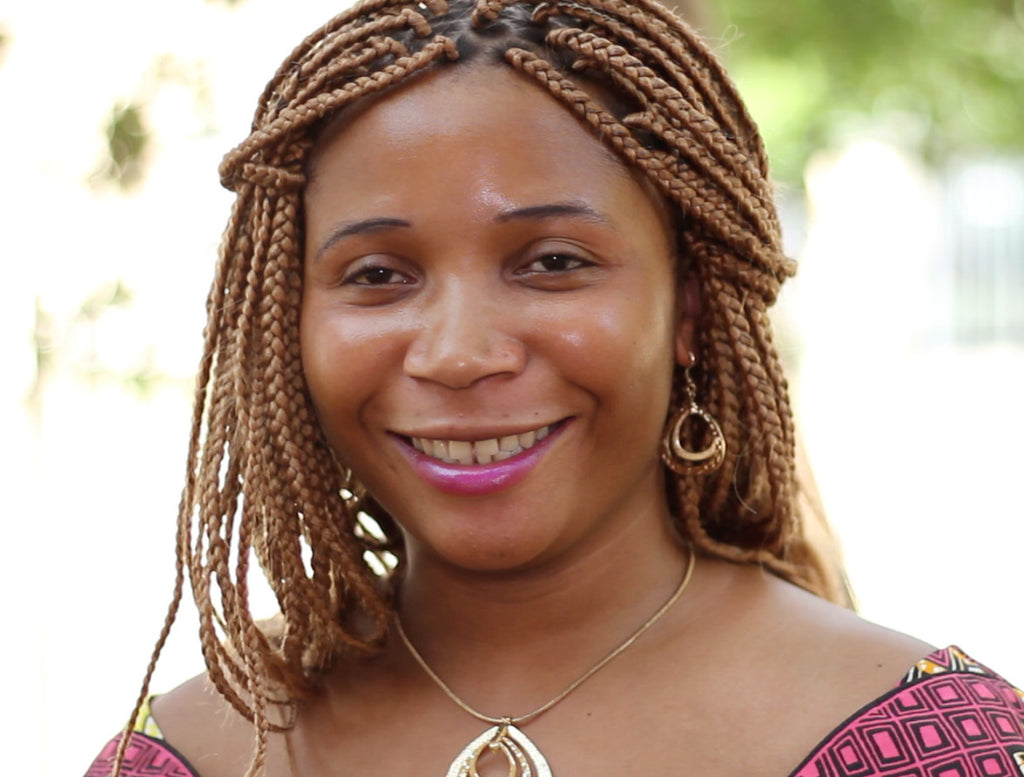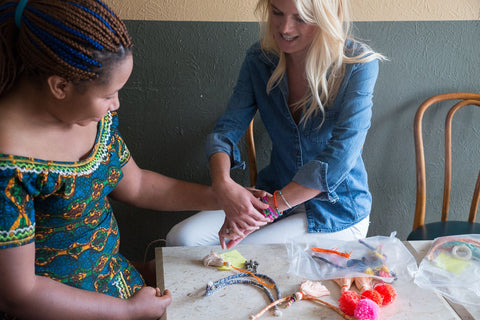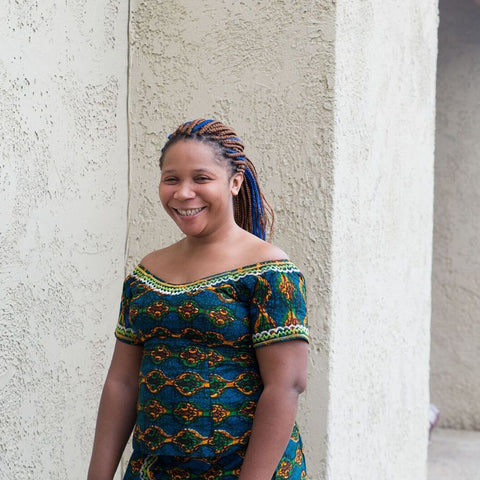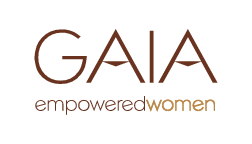Meet Feza

Feza Ramazani was just 10 years old when she and her sister went to live in an East Africa refugee camp. The year was 1997. The girls were living with their parents and brother in the Democratic Republic of the Congo when that country exploded into war. When their community was destroyed, the girls were sent to live in Zambia. Shortly thereafter, their brother and father were killed.
After several years in Zambia, Feza and her sister moved to a camp in Tanzania. That’s where she met her husband, Aheyo, and where their oldest child was born. In time, they relocated back to a refugee camp in Zambia, where their middle and youngest children were born.
The camps weren’t scary, Feza says. She was safe and slept well at night, but there wasn’t work. They didn’t have any money, and her children were bored. There were schools, but they weren’t very good, she says. So when she and Aheyo were chosen by the International Rescue Committee (IRC) to move to the United States, they said yes.

In 2012, with help from the IRC and after undergoing a rigorous screening process, the family moved to Dallas. By then, Feza had spent 15 years — most of her life — in refugee camps.
Today, the family lives in East Dallas. The children — now ages 12, 10, and 6 — are in school. Aheyo works full-time at Dr. Kracker in Plano, and Feza works from home for GAIA, making our tassel necklaces, earrings, bracelets, and more.
Feza says that from day one, she loved living in the United States. “Everybody is free, and my children can go to good schools,” she says. She doesn’t miss Africa, though her mother and sister still live there, and Aheyo sometimes talks about making sure their children get to know his homeland.
But Feza says just thinking about it makes her sad. “There are a lot of problems there,” she says. “I lost two people there. I don’t need to go back.”

There is no sadness in her face, however, when she talks about her life now — only joy. She shakes her braids and breaks into a huge, sweet smile when she talks about how her children tease her about her English and how they may someday go to college.
Learning a new language as an adult has been hard, and she says that at first making jewelry for GAIA was difficult. But now, she says with pride, “I’ve got it.”
Learn more about about refugee resettlement and how you can help at rescue.org.


Comments on this post (0)